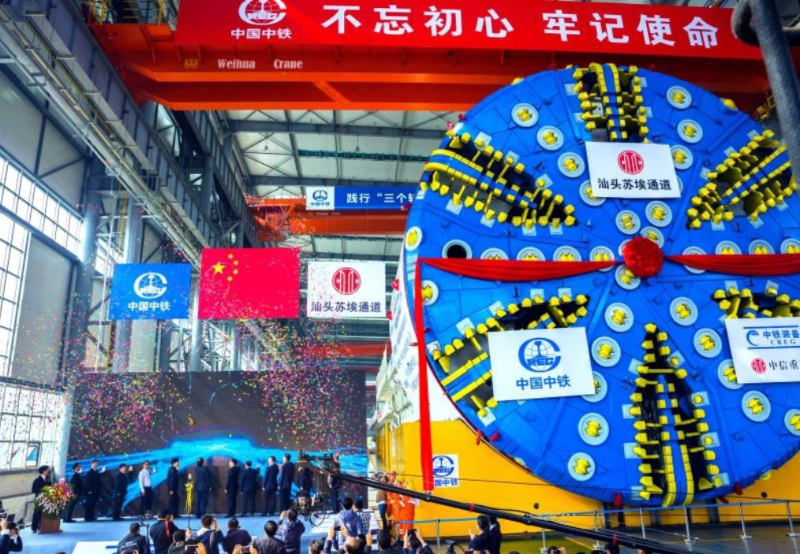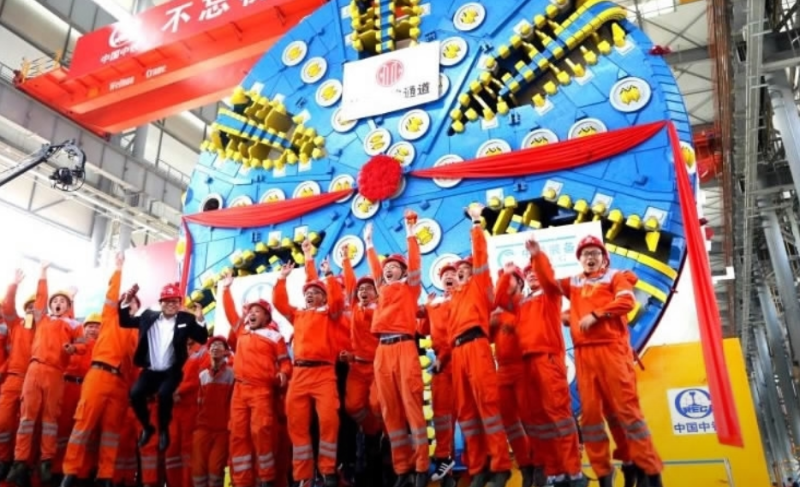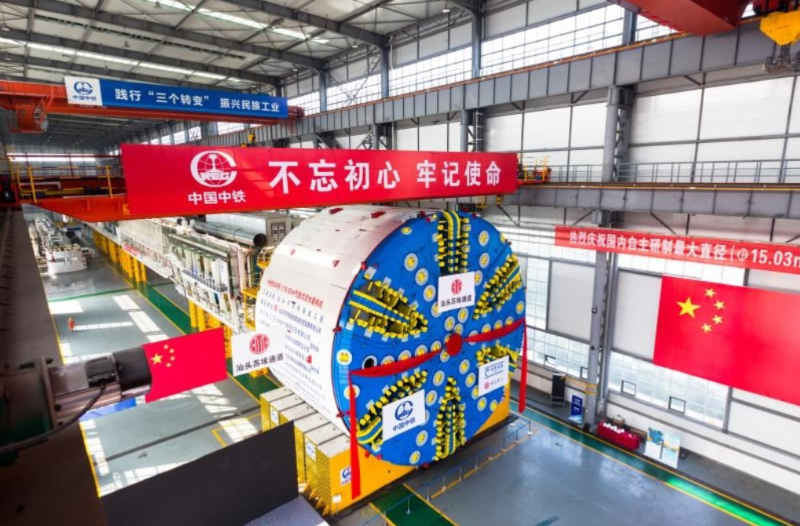
The CREC launch ceremony for the TBM /Science and Technology Daily Photo
The China Railway Group (CREC) on Thursday announced its completion of a huge tunnel boring machine (TBM) with advanced capabilities for drilling in wet conditions, a breakthrough which the company sees as a demonstration of its world-leading status.
TBMs are tube-shaped monsters used to drill underground tunnels. They have massive blades on their shield-like fronts which can break through harder rocks compared with traditional drilling and bombing method.
The newly-built TBM is 15.03 meters wide, about 4,000 tons in weight and 100 meters in length.
According to a report on tunneltalk.com, there are only two TBMs in the world with a diameter larger than 17 meters. The size of all the other mega-TBMs is below 16 meters. The new TBM by the CREC ranks 10th in the world.
"This TBM is a sign that our technology has already caught up with, if not surpassed, the world's best," said Liu Hui, chief engineer at the CREC.

Slurry-balanced
The machine is also the largest TBM built by China with a feature called slurry-balancing.
When using a TBM to drill a tunnel, the machine may turn away from its designed route because the material it is boring into is too soft compared to rock and mud.
Modern TBMs use slurry to balance the pressure, and stabilize the machine. Slurry can also help flush out the drill cuttings.
Developing countries like China have previously been unable to develop slurry-balancing borers, so have had to import expensive TBMs from the West. That's why China was highly motivated to develop its own technology.

The new TBM /Science and Technology Daily Photo
The new machine will be first used in an underwater tunnel project in south China's Shantou City.
"The rocks in our tunnel are too hard, and composed of various materials," said Xiao Guanping, a major investor. "This machine is customized to deal with our problem."